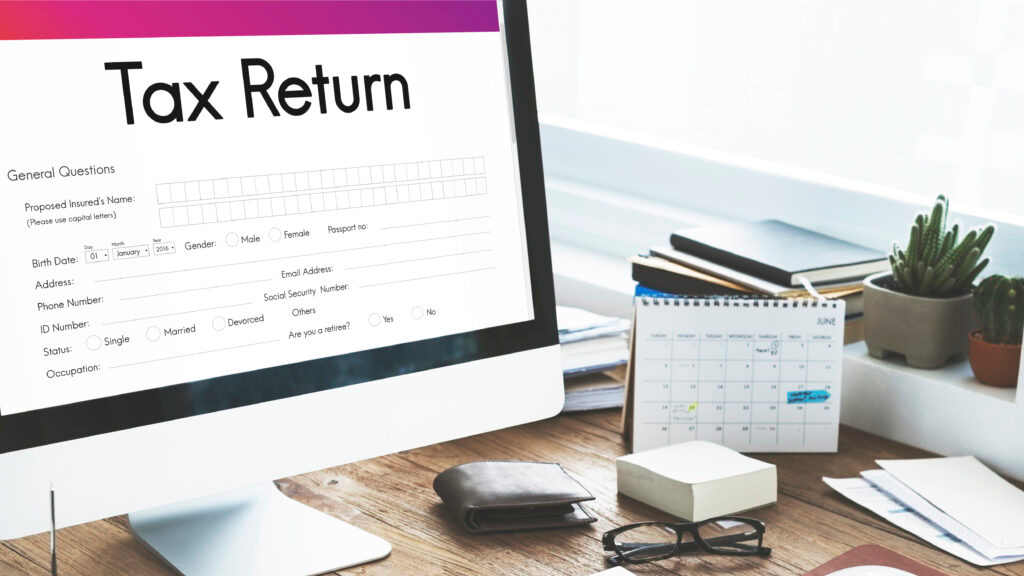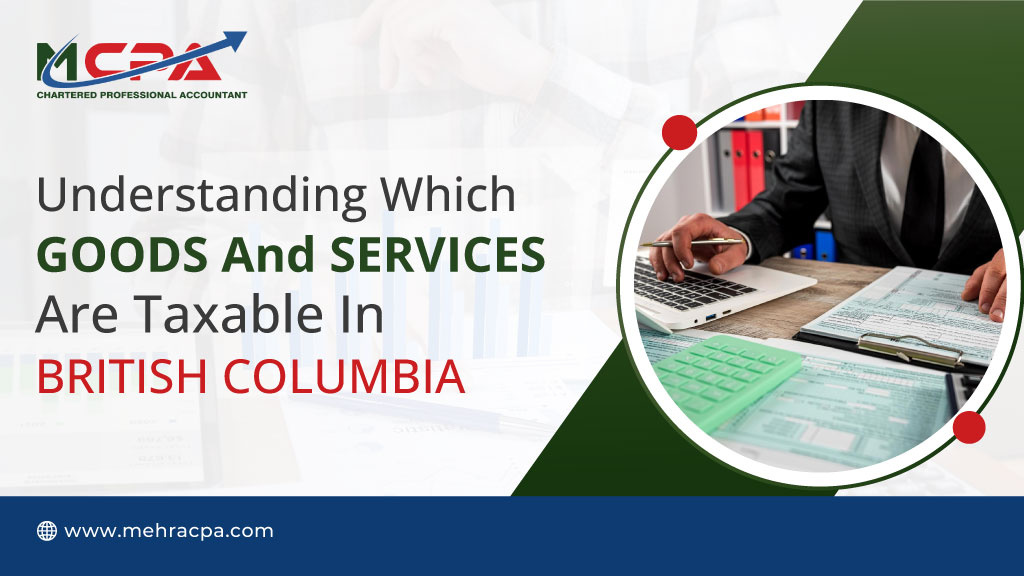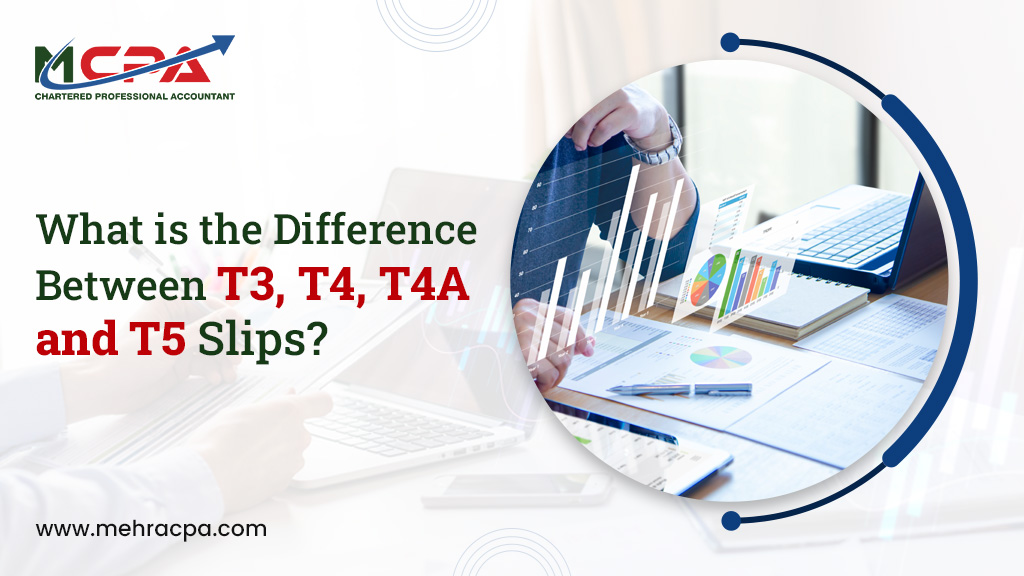
Recent Post
Will You Receive a Canada Grocery Rebate in 2024?
In 2024, the Canadian government is continuing its initiative to…
Everything You Need to Know About the T5018
The T5018 form is an essential tax document for Canadian…
Understanding Which Goods and Services Are Taxable in British Columbia
British Columbia (BC) has a distinct system for determining which…
What Are the Difference Between T3, T4, T4A and T5 Slips?
In the realm of tax documentation, there exists a cluster…
When it comes to taxes in Canada, it’s essential to distinguish between personal and business tax returns. Understanding the differences between these two types of taxation is crucial for both individuals and entrepreneurs. In this comprehensive guide, we will explore the distinctions between corporate tax vs. personal tax in Canada, business tax vs. personal tax in Canada, personal income tax vs. business tax, small business tax vs. personal tax, and business income tax vs. personal income tax. By the end of this article, you’ll have a clear picture of the Canadian tax landscape, making it easier to navigate the complex world of taxation.
Key Elements of Personal Tax Returns
1. Personal Income Tax
Personal income tax is a levy imposed on the income of individuals. In Canada, personal income tax is collected by the federal government as well as provincial and territorial governments. Each province and territory sets its own tax rates, which means that the tax you pay may vary depending on where you live.
2. Tax Brackets
The Canadian personal income tax return system is progressive, which means that higher earners pay a higher percentage of their income in taxes. Taxpayers are divided into tax brackets, and as their income increases, so does the tax rate they pay. The tax brackets are adjusted for inflation every year.
3. Deductions and Credits
Individuals can claim various deductions and tax credits to reduce their tax liability. Common deductions include those for charitable donations, medical expenses, and RRSP (Registered Retirement Savings Plan) contributions. Tax credits, on the other hand, can provide a dollar-for-dollar reduction in the taxes you owe. The Canada Child Benefit is an example of a tax credit designed to support families.
Key Elements of Business Tax Returns
1. Corporate Income Tax
Businesses in Canada, whether they are sole proprietorships, partnerships, or corporations, are subject to taxation. Corporate income tax is levied on the profits earned by businesses. The tax rate for corporate income tax is determined at the federal level, and businesses must also pay provincial or territorial income tax.
2. Tax Rates
One significant difference between personal and business taxation in Canada is the tax rate. Corporate income tax rates are typically lower than personal income tax rates. Businesses benefit from a lower tax burden on their profits, which can be reinvested in the company for growth and expansion.
3. Deductions and write-offs
Similar to personal taxation, businesses can claim deductions and write-offs to reduce their taxable income. These deductions can include expenses related to the operation of the business, such as rent, utilities, salaries, and supplies. Additionally, businesses can claim depreciation on assets and capital cost allowances.
Key Differences: Corporate Tax vs. Personal Tax in Canada
1. Legal Structure
The most fundamental distinction between personal and business taxation is the legal structure. Personal income tax pertains to individuals, while corporate income tax applies to registered businesses. Personal income tax is paid by individuals on their earnings, while corporate income tax is paid by companies on their profits.
2. Tax Rates
As mentioned earlier, personal income tax rates are typically higher than corporate income tax rates. This tax advantage is one of the main reasons businesses choose to incorporate. By doing so, they can benefit from lower tax rates, which can result in significant tax savings.
3. Deductions and Credits
Both personal and business taxation allow for deductions and credits to reduce the overall tax liability. However, the types of deductions and credits differ. Individuals may claim personal deductions like those for education, medical expenses, and child care, whereas businesses can deduct expenses directly related to their operations. Additionally, businesses may be eligible for unique tax credits designed to promote economic growth and investment.
Know This- Tax Brackets in British Columbia
Business Tax vs. Personal Tax Return in Canada
1. Reporting
The reporting and filing requirements for personal and business taxes in Canada differ significantly. Individuals report their income and deductions on a personal income tax return, such as the T1 General form. In contrast, businesses use different forms depending on their legal structure. Corporations, for example, use the T2 Corporation Income Tax Return. The complexity of business tax returns often requires the expertise of accountants or tax professionals.
2. Payment Dates
Individuals in Canada generally have until April 30th of the following year to file their personal income tax returns. In contrast, businesses have different filing deadlines. For example, corporations must file their tax returns within six months of the end of their fiscal year. This date can vary based on the corporation’s specific fiscal year-end.
3. Small Business Deductions
Small businesses in Canada may be eligible for special tax deductions designed to support entrepreneurship and economic development. The Small Business Deduction (SBD) is one such example. It allows small businesses to apply a reduced tax rate on their active business income, resulting in significant tax savings.
4. Tax Planning
Small business owners often have more flexibility in managing their finances and structuring their affairs to minimize tax liability. Personal tax planning primarily focuses on personal deductions and credits, while small business tax planning includes considerations like income splitting and capital gains exemptions.
5. Passive Income
Another significant difference between business and personal taxation in Canada relates to passive income. Passive income earned by a corporation can be subject to additional taxes. The Canadian government introduced measures to limit the tax advantages of investing through a corporation. These rules are designed to ensure that corporations are primarily used for active business purposes, not as tax shelters for personal investments.
6. Capital Gains
Capital gains taxation is another area where canada business tax returns and personal taxation differ. Individuals pay taxes on 50% of their capital gains, while corporations pay taxes on 50% of their capital gains as well. However, business owners may have access to additional strategies and exemptions that can reduce the overall tax impact of capital gains realized through the sale of their business.
Conclusion
In Canada, understanding the key differences between personal and business tax returns is essential for individuals and business owners alike. Personal taxation primarily concerns individuals and their income, while business taxation applies to registered companies. The distinctions are evident in tax rates, deductions, and reporting requirements. Small businesses have access to special deductions, while corporations must navigate additional rules regarding passive income and capital gains.
By grasping these differences, individuals and business owners can make informed decisions about their tax planning and compliance. It’s advisable to consult with tax professionals or accountants to ensure that you are maximizing your deductions and minimizing your tax liability, whether on a personal or business level. In the ever-evolving world of taxation, knowledge is indeed power.




